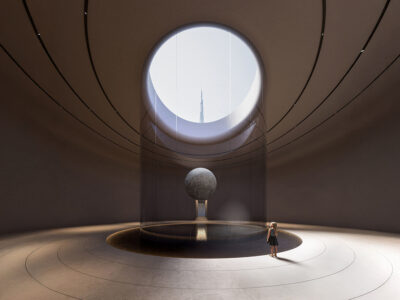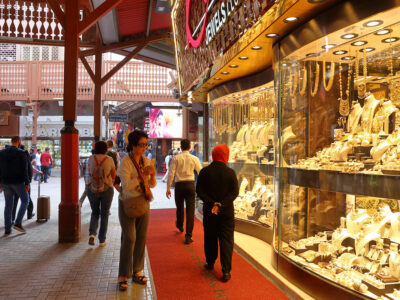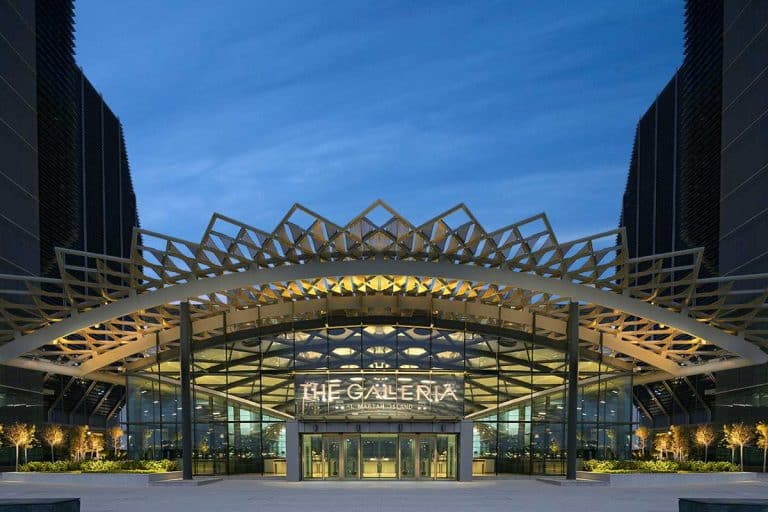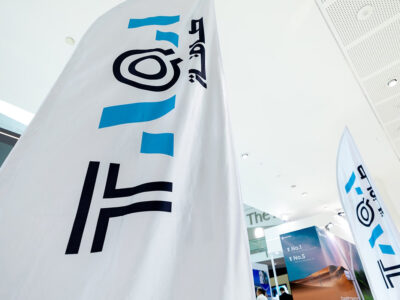By definition, a luxury retail and lifestyle destination delivers an experience that is a cut above your everyday high-street shopping. The main drivers and motivations of those seeking such destinations are not competitive price points or massive variety.
Instead, what draws people to luxury retail and lifestyle destinations is experience and emotion. When experience-seekers are treated more like a “guest” and less like a “consumer” or “customer”, this shift in approach gives way to an entirely new relationship.
In response to changing demands, tastes and expectations, the world of luxury retail is undergoing a significant transformation in a number of ways.
Luxury upsized
Despite the proliferation of online retail, the physical setting remains a critical factor in the luxury retail and lifestyle sector, with the majority of sales occurring in brick-and-mortar stores. In 2022, there was an 11 percent increase in new upmarket store openings globally, outperforming the wider retail sector. The Middle East, in particular, continues to be an important growth region, and last year alone the market share of global new openings of luxury stores doubled to 6 percent, compared with 2021.
With luxury store openings picking up pace in the Middle East, luxury malls in the UAE and Saudi Arabia that house the overwhelming majority of these brands are primed for growth. With the expectation of increasing demand for in-store luxury experiences, luxury groups are increasingly investing in upsizing and elevating their stores with many retailers reinvigorating physical locations.
The aim is to pivot from a space where guests can purchase products to a place where guests can experience the brand. This shift is most evident in the upsizing of the Dior flagship in Paris which reopened in 2022 with a 10,000 square metre space including a gallery, restaurant, VIP guest suite and more.
The luxury ‘maison’ got it right once again with the unveiling of the Dior beach club concept store in the UAE where guests could experience partying, shopping and relaxing all in the same spot.
This trend is apparent in the Middle East also. Here in Abu Dhabi brands like Louis Vuitton, Dior, Cartier, Fendi and more have all recently reinvigorated their in-store experiences, while brands like Hermès have introduced new store concepts to the market. These enhancements reaffirm their confidence in established locations, as well as a commitment to serve the market at the highest level.
By crafting unique lifestyle encounters alongside experiential shopping, luxury malls, like luxury stores, are building and expanding a loyal base of guests. When diving a little deeper into the thought processes and behavioural decision-making, some interesting themes emerge that can contribute to the overall success of a luxury retail destination.
Facilitating connection through design
Despite the convenience of online shopping, consumers still yearn for human connection and consideration. The exchange of value is as much in the encounter as it is in the transaction, and a report by the International Council of Shopping Centers (ICSC), the global trade association of ‘marketplaces’, reveals that 84 percent of consumers view shopping centres as social gathering places.
From this perspective experience-seekers are no longer simply consumers, they become guests the moment they consider visiting a retail destination. Luxury malls have long recognised this experiential need, embracing design elements and offerings that include comfortable lounges, inviting cafés, and beautifully designed common areas, that generate opportunities for spontaneous interactions and conversation.’
From this perspective experience-seekers are no longer simply consumers, they become guests the moment they consider visiting a retail destination. Luxury malls have long recognised this experiential need, embracing design elements and offerings that include comfortable lounges, inviting cafés, and beautifully designed common areas, that generate opportunities for spontaneous interactions and conversation.
The Parque Toreo mall in Mexico City was designed around the idea of a “great park” (as its name in Spanish suggests), by the architecture firm Sordo Madaleno Arquitectos. With a glazed roof covering the extent of the mall, the interior is dotted with large trees, fountains and benches. The master plan for the mall focused on design and landscaping elements that would facilitate social gatherings and give the impression of an outdoor public space. The mixed-use development makes use of rich indoor vegetation and natural light to create an elevated shopping experience akin to an upscale high street.
Ethical aesthetics
The visual appeal of luxury malls cannot be underestimated. Architecture and design are often the very first impression people are exposed to, and in the current environment, ethics are as relevant as aesthetics. A blend of green landscaping, sustainable materials, considerate resource use, eye-catching design statements, art installations, and a nod to local heritage, all play a part in crafting this balance.
Miami’s Brickell City Centre designed by acclaimed architecture firm, Arquitectonica, is a good example of ethical aesthetics done right. The architecture firm built the Brickell City Centre based on the concept of an outdoor environment with ‘porosity’ that would blur the boundaries of the development.
So rather than an enclosed mall, the destination is designed to blend into the outdoor community. This blurring of boundaries is further reinforced by design elements such as ‘The Climate Ribbon’; an elevated trellis that connects the mall to the adjacent city blocks while also letting in light and air, capturing wind and collecting rainwater that is then used to irrigate the landscaping in the mall.
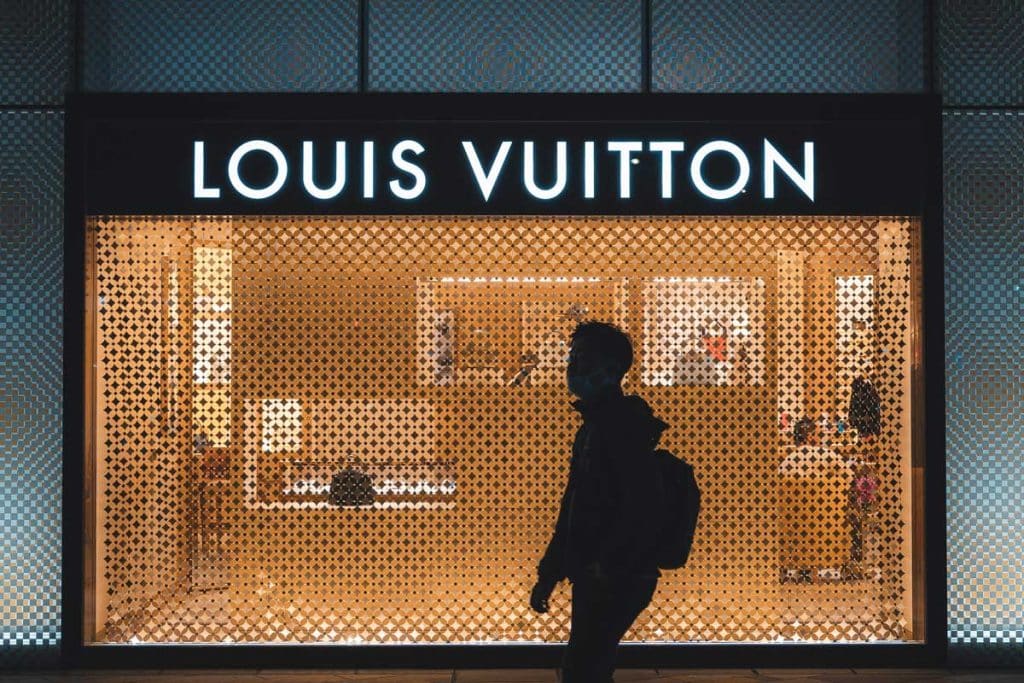
The power of sensory storytelling
According to research published in the Journal of Retailing and Consumer Services, sensory cues such as ambient scents, soft lighting, and calming music have a positive impact on shoppers’ emotions and overall satisfaction.
But even more important is how these elements complement each other to create a sensory-rich environment that not only impacts purchase behaviour but also time spent at the destination. Specifically, when it comes to luxury retail, numerous studies have demonstrated the impact of sensory marketing on emotional attachment and brand loyalty.
The ability to engage guests’ five senses is a critical competitive edge that retail and lifestyle destinations have over e-commerce platforms.
Cultivating a sense of belonging
Luxury malls offer more than just retail, by engaging guests through bespoke events and celebrations that bring people together. Curated experiences create an important sense of belonging and attachment with other guests and with the destination. The activities themselves can vary from workshops, to the slow fashion show movement, hosting exclusive VIP events and celebrations or highlighting sustainable fashion and wellness experiences.
All serve to enhance the sense of belonging to a special community. According to the International Council of Shopping Centers, 62 percent of shoppers desire entertainment options, highlighting the importance of providing diverse experiences to attract and engage visitors.
The K11 Musea in Hong Kong, a $2.6 billion development that was opened in 2019, is the epicentre of the art and culture district of Victoria Dockside. From café-hopping circuits to high-concept art exhibitions and a biodiversity museum, K11’s creative programming ties together the mall’s diverse offerings.
The mall also creates programming to align with community events in the city, such as an exhibition on the history of street art in Hong Kong that was timed to coincide with Art Basel Hong Kong, one of the world’s leading international art festivals.
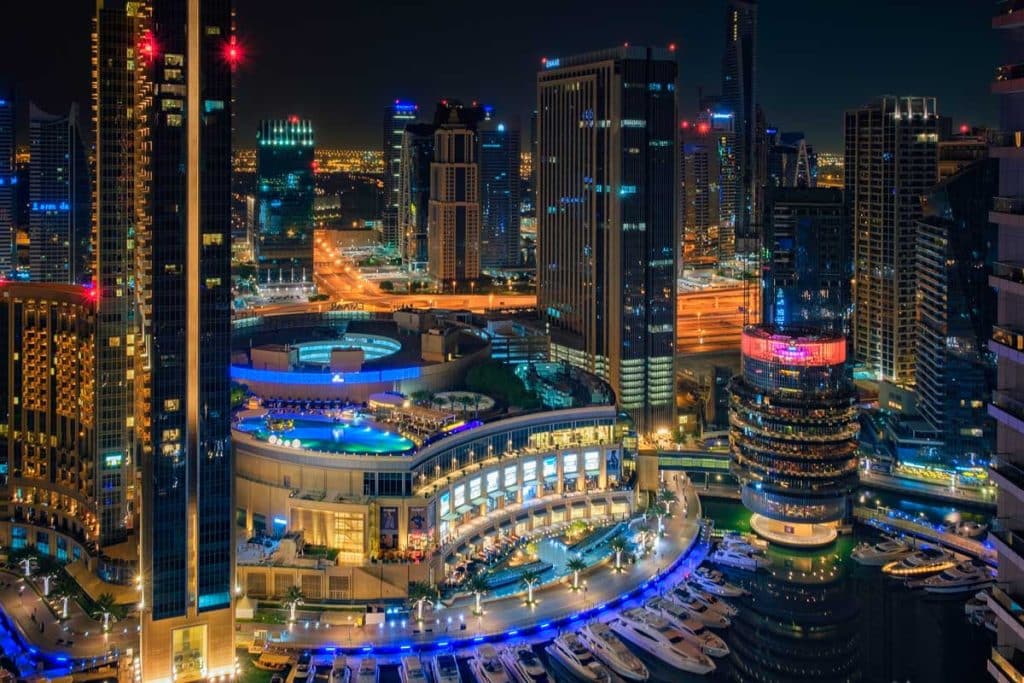
The desire for indulgence
Today’s guest expects a tailor-made experience when they are shopping, and providing the VIP treatment pays off. Research by McKinsey on personalisation has shown the correlation between this enhanced guest experience and increased guest loyalty.
Hospitality and exceptional service are deeply ingrained in Middle Eastern culture, and luxury malls are important guardians of this tradition by offering personalised and bespoke services, alongside well-trained staff, personal shopping assistance and concierge services.’Hospitality and exceptional service are deeply ingrained in Middle Eastern culture, and luxury malls are important guardians of this tradition by offering personalised and bespoke services, alongside well-trained staff, personal shopping assistance and concierge services.
As the definition of luxury continues to evolve, the above elements will play a pivotal role in attracting and retaining discerning guests who seek memorable experiences and genuine connections. Luxury malls in the Middle East, as elsewhere, would be wise to continue investing in these areas as they seek to elevate the standards of luxury for experience-seekers in the region and beyond.

